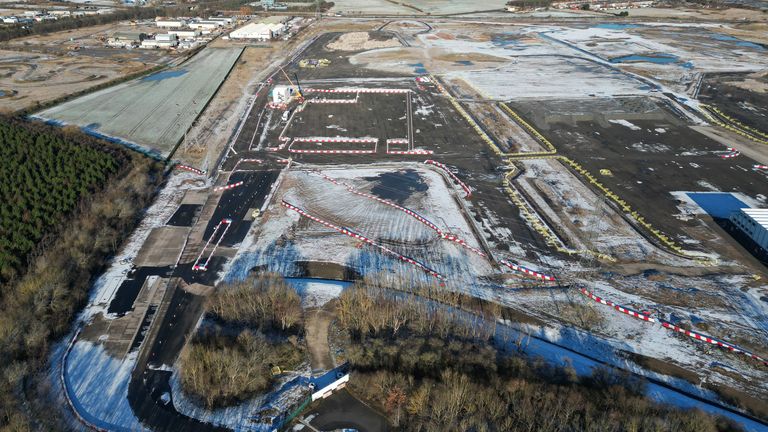UK car production slumps to 66-year low but acceleration expected ahead
UK car production fell to its lowest level since 1956 last year, according to industry figures showing that the global shortage of parts continued to drag on performance.
The Society of Motor Manufacturers and Traders (SMMT) had already reported how the sale of new vehicles in 2022 was severely damaged by the lack of key components, particularly semiconductor chips.
COVID-led supply chain disruption harmed the ability of UK factories to drive availability to meet demand though there is optimism the worst is now behind the sector.
While 2022 will not be seen as a success in the rear view mirror, there was limited progress in efforts to produce more zero emission, or more climate-friendly vehicles, as the clock ticks down towards the 2030 ban on the sale of new cars powered by diesel and petrol.
A total of 775,014 cars were built in 2022, the SMMT said.
That was down almost 10% from the 859,575 made during the previous year and 40.5% below pre COVID crisis levels in 2019.
The SMMT said the figures were distorted by the closure of Honda’s factory in Swindon in July 2021 and the decision by Stellantis to stop producing the Vauxhall Astra in Ellesmere Port in April 2022 to produce electric vans instead.
The bright spark was the production of 234,066 fully electric, or battery electric vehicles (BEV), plug-in hybrids (PHEV) and hybrid (HEV) electric vehicles.
It was a record total, with combined production up 4.5% versus 2021.
Hybrids and BEVs accounted for 30.2% of all car production, the SMMT said.
Independent forecasts suggest the reopening of the Chinese economy from COVID restrictions should help drive a 15% increase in UK output this year as crucial chips become more readily available.
There are challenges.
These include the risk of investment flowing to the United States due to heavy government subsidies.
The collapse of the Britishvolt electric vehicle battery start-up has also raised fears over the domestic supply chain ahead of the 2030 deadline.
SMMT chief executive, Mike Hawes, said: “The potential for this sector to deliver economic growth by building more of these zero-emission models is self-evident; however, we must make the right decisions now.
“This means shaping a strategy to drive rapid upscaling of UK battery production and the shift to electric vehicles based on the UK automotive sector’s fundamental strengths – a highly skilled and flexible workforce, engineering excellence, technical innovation and productivity levels that are among the best in Europe.”
A government spokesperson said of the state of affairs: “We are determined to ensure the UK remains one of the best locations in the world for automotive manufacturing.
“Our success is evidenced by the £1bn investment in Sunderland in 2021, and we are building on this through a major investment programme to electrify our supply chain and create jobs.”
For all the latest business News Click Here


